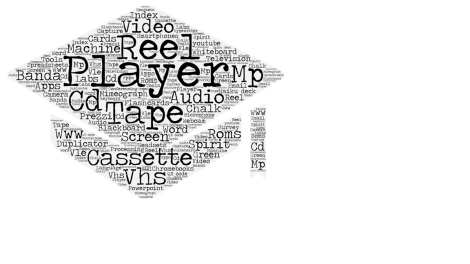A response to discussions in #creativeHE.

There are so many flavours of pedagogy flying around in HE at the moment: paragogy, discipline-specific pedagogies, critical digital pedagogy, androgogy and many more. The roots of the word are Greek and described the process of leading children so it seems to me to be a strange word to be used in an HE context where we work with young (and not so young) adults, although it is used perhaps in the broader sense of a container for referring to our approaches and practices in teaching. I will frame my response in the light of this interpretation.
This question was posed by #creative HE around our personal pedagogy:
-what or who has influenced your pedagogical knowledge, beliefs and values?
I responded to the survey with just a few key lightbulb moments in my teaching career and felt that I should unpack some of these more fully through a reflective blog post.
My training as a language teacher brought me into contact with the learning theories of the day which, from a disciplinary perspective where moving away from the grammar translation methods of the past and towards greater use of multimedia approaches but were still quite deeply teacher-led, communicative language teaching which embraced the PPP model (Presentation, practice,production). There was a focus on accuracy of repetition and an assumption that if the teacher provided the correct, comprehensible input and demanded students produced language (comprehensive output) all would be well. This was progress but my years as a classroom teacher and the rapidly changing world of the 80’s onwards brought changes which made me question whether the theories are sufficient to explain the sort of learning I was seeing. I have continued to engage with the work of researchers in both language acquisition and generic learning over the years (now over 30 years) in the profession and, along with the years of experience across primary, secondary and tertiary sectors as well as spells working with business learners my personal pedagogy is distinctly hybrid.
The affordances of the digital have dramatically increased the opportunities for interaction (which has often been perceived as problematic for language learners, needing careful scaffolding). The opportunities for personal self directed learning offered by the internet have also changed me. I find the best explanation for my personal development is provided by the learning theory known as heutagogy. There is no doubt that learning technologies have been fundamental to the learning I do (the word cloud shows just some of the many I have mastered over the years) and the learning I facilitate with my students, practices such as online intercultural exchange (OIE) and becoming an open practitioner have evolved from this engagement with both theory and practice. Part of the professionalism of all teaching practitioners involves reflective engagement with learning theories, there is a need to carry out action research in your teaching context in order to better understand your learners and their needs too. To teach well requires continuous learning, listening and humility as well as a passion for your craft. Teaching is both a social and a political activity.
My influences? Here are a few key ones-
- Paulo Freire: The pedagogy of the oppressed. Language learning is too often restricted to those who can afford the opportunities offered by travel, overcome the barriers of limited availability of courses and high costs of tuition.
- Stephen Krashen: Theory of language acquisition esp. affective filter hypothesis. Language production is an intensely personal experience and ideal learning conditions require sensitivity and support for learners. It must be possible to make mistakes and anxiety levels need to be low.
- Steven Pinker: The language instinct. A major shift in the understanding of how the brain processes language continues, this work was a big challenge to the work of Noam Chomsky and significantly moved the conversation on.
- Ken Robinson: The Element and so much more on creativity and personal development and the craft of teaching.
There are so many others (Illich Deschooling society, such an important critical voice; Giddens’ theory of structuration: important in my research approach, many more for learning technology too as my work is interdisciplinary) but all are visible in my publications so on with the work, there is still much to be done as our context changes every day. The pace of change is outstripping the teacher’s ability to grasp new conceptualisations of human learning, pedadogies need to move with our times. Anyone fancy contributing to updating this wikipedia page?
